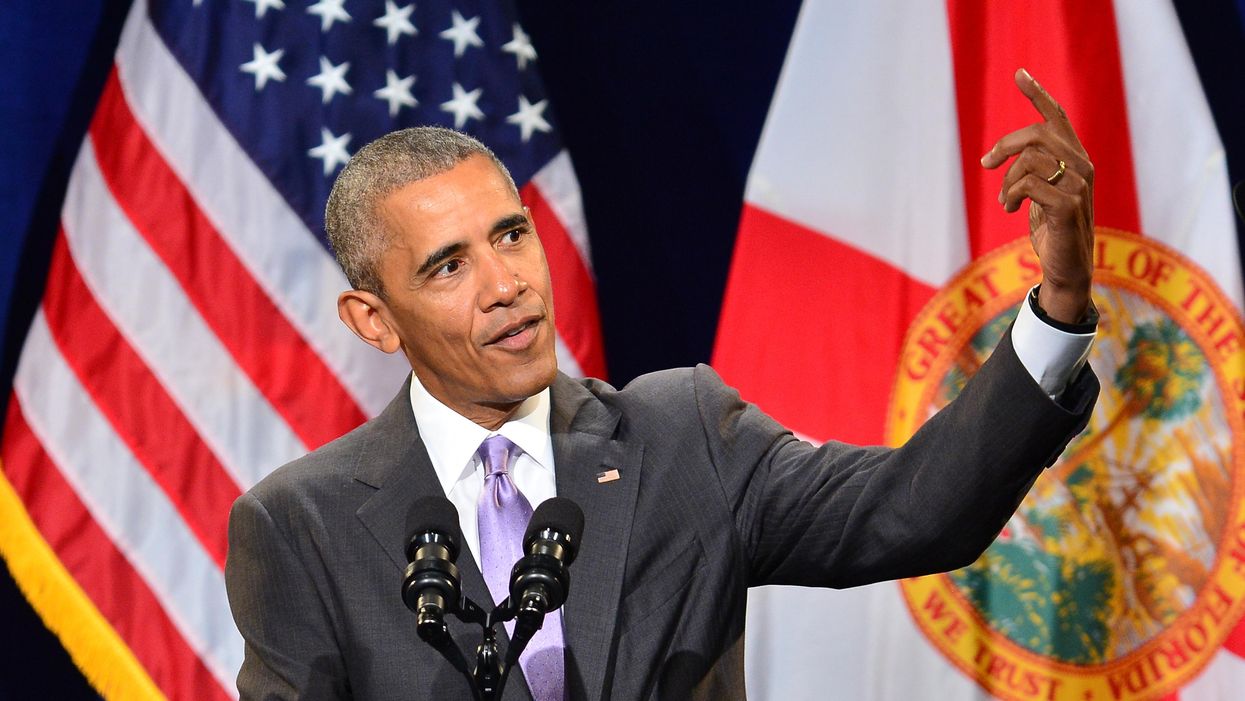Lautz is a government affairs manager at the National Taxpayers Union, which advocates for fiscally conservative policies. Bydlak directs the budget policy work of the R Street Institute, a center-right think tank.
This is part of a series advocating for parts of legislation soon to be proposed in the House, dubbed the Protecting Our Democracy Act, designed to improve democracy's checks and balances by curbing presidential power.
As debate rages inside and outside of Washington over the health of American democracy, it's past time for Congress to address one of the most significant problems in our system of checks and balances: presidential administrations usurping the power of the purse, and lawmakers all too happy to let them.
The Founders were clear in their intent for this separation of power between the branches. James Madison, who would serve in the House and as secretary of state before becoming the fourth president, wrote in"Federalist No. 58" that the House "cannot only refuse, but they alone can propose, the supplies requisite for the support of government," adding: "This power over the purse may, in fact, be regarded as the most complete and effectual weapon with which any constitution can arm the immediate representatives of the people, for obtaining a redress of every grievance, and for carrying into effect every just and salutary measure."
The Constitution reflects Madison's perspective. Article 1, Section 7 states that "All Bills for raising Revenue shall originate in the House of Representatives," and Section 8 asserts that "Congress shall have Power To lay and collect Taxes, Duties, Imposts and Excises, to pay the Debts and provide for the common Defence and general Welfare of the United States." Section 9 affirms that "No Money shall be drawn from the Treasury, but in Consequence of Appropriations made by Law." It is hard to imagine how the Framers could have been clearer.
Over recent decades, however, Congress has increasingly abdicated these powers to a growing executive branch. The problem is illustrated by numerous and prominent abuses of congressionally appropriated funds by presidents of both parties.
Last year, Donald Trump reprogrammed $3.8 billion worth of Defense Department money for a border wall that Congress refused to fund at his desired levels — a move a federal appeals court partially rolled back last summer. And Trump's first impeachment trial was focused in part on a similar withholding of funds for aid to Ukraine.
When Barack Obama was president, a lawsuit over the Affordable Care Act's risk-based payments to health insurers became a major purse strings fight between him and a Congress controlled by Republicans. The case made it all the way to the Supreme Court last year.
Arguments about the congressional power of the purse were often featured in the debate over the military operations of George W. Bush's administration, with some of the toughest pushback from Joe Biden when he was chairman of the Senate Foreign Relations Committee.
Such fights threaten the integrity and transparent flow of taxpayer dollars, and lawsuits and inter-branch warfare cost further time, money and effort. But there are solutions: Title V of the Protecting our Democracy Act would reassert the congressional power of the purse and recalibrate the constitutional imbalance over who controls taxpayer dollars.
The legislation would require the executive branch and its powerful Office of Management and Budget to release congressionally appropriated funds with enough time for agencies to actually obligate and spend the money before their authority to do so expires. It would also require OMB to set up a public website for reporting all its decisions on when and how fast agencies may spend funds that are released to them. This process, called apportionment, now has little transparency — and that makes it nearly impossible for either lawmakers or non-governmental watchdogs to safeguard taxpayer dollars.
The bill would require presidents to report to Congress on outstanding balances of taxpayer funds that expired or were cancelled in the past few years — a direct analog to the Constitution's stipulation that "a regular Statement and Account of the Receipts and Expenditures of all public Money shall be published from time to time." More practically, the provision would give lawmakers important insights into how money moves (or doesn't move) through a complex and often byzantine executive branch system.
None of these reforms alone would fix the existing power imbalance between Congress and the president. Lawmakers also should reform the National Emergencies Act, enhance the roles of federal inspectors general in reporting abuse and misuse of taxpayer funds, and enact more robust legal protections for whistleblowers in government — particularly those in the executive branch.
The Protecting Our Democracy Act, while far from a perfect piece of legislation, would make important strides in all of these areas.
Ensuring proper oversight of taxpayer dollars requires a strong Congress. Only the legislature can get access to — and constitutionally demand — information from the executive, but sadly the House and Senate have found it easier to abdicate this responsibility. Stronger congressional control over the nation's purse strings would ensure that all American citizens could effectively petition their representatives in government over the use of taxpayer dollars. It would enable elected members of Congress, and non-governmental oversight groups, to exercise greater input over how the executive branch spends our money.
And ultimately, it would strengthen a democracy that sorely needs to build some muscle.



















Trump & Hegseth gave Mark Kelly a huge 2028 gift